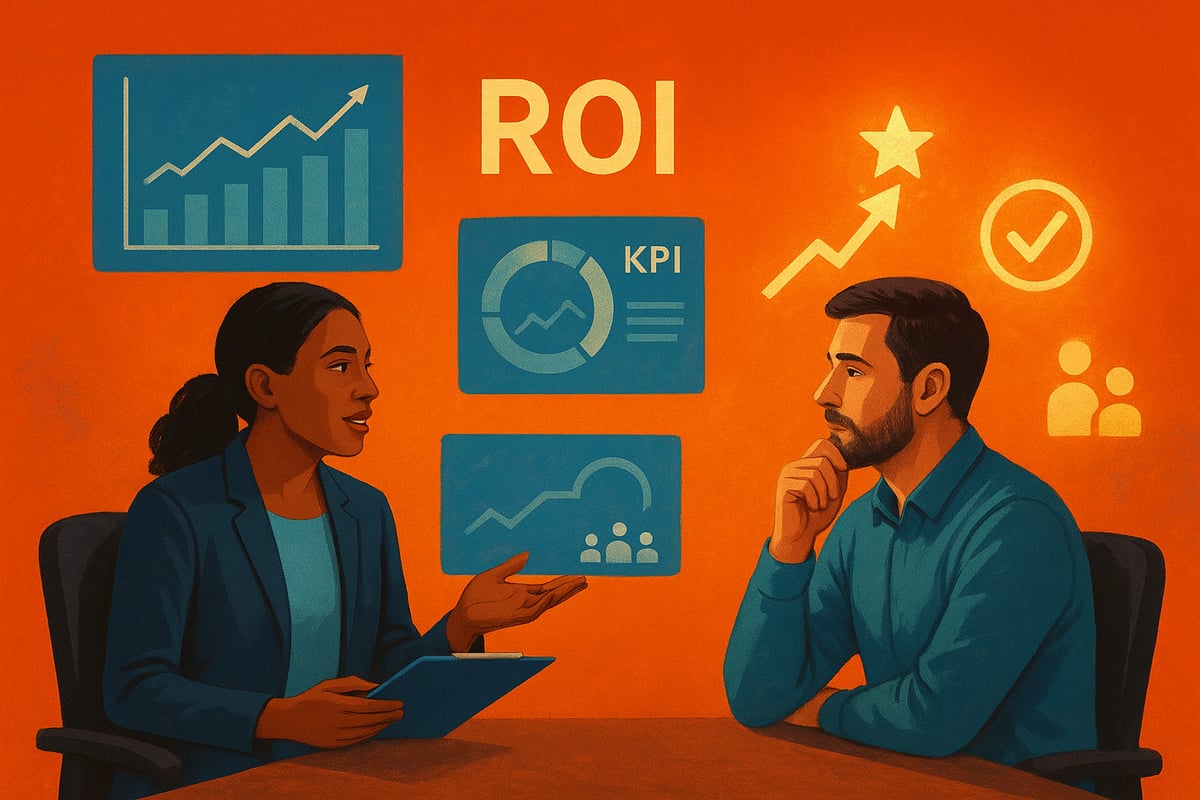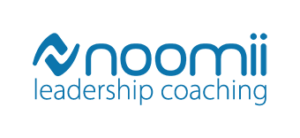Does Life Coaching Have an ROI? The Essential 2025 Guide
Can investing in a life coach really pay off, or is it just another self-help trend? In a world where personal and professional growth are highly valued, many are asking, does life coaching have an roi that can be measured and justified?
This essential 2025 guide offers a clear answer. We explore the real value of life coaching for individuals and organizations, showing you how to evaluate its impact with data, research, and practical examples.
You will discover what ROI means in the context of coaching, the measurable benefits you can expect, and how to track both financial and non-financial returns. We also provide step-by-step methods to calculate results and actionable tips for maximizing your investment.
If you want clarity on coaching’s real-world impact or need proven recommendations for choosing the right coach, you are in the right place. For those eager to take the next step, explore expert coaching insights at Accountability Now.
This guide is designed to help you make informed decisions, measure outcomes, and unlock the full potential of life coaching.
Understanding ROI in Life Coaching
Return on investment, or ROI, is a crucial concept when exploring the question, does life coaching have an roi. In the context of life coaching, ROI refers to the measurable value a client or organization receives compared to the resources invested in coaching services.
ROI matters for both individuals and organizations because it helps determine whether coaching leads to real, lasting changes. Tangible returns are easier to track, such as increased productivity, improved retention, or achieving set goals. Intangible returns, like boosted confidence, clarity, or motivation, are equally important but often harder to quantify. For a deeper dive into how these benefits play out, see Unlocking Your Potential: The Transformative Power of Life Coaching.
Common misconceptions persist about measuring coaching outcomes. Some believe only hard numbers matter, but soft skills—such as enhanced communication or resilience—can transform teams and drive business results. Metrics used to track ROI include productivity rates, staff retention, goal achievement, and overall well-being improvements.
Quantifying “soft” skills remains a challenge, yet industry research provides guidance. According to the ICF Global Coaching Study, organizations often report significant gains, with many recouping their coaching investment. This demonstrates that, when asked does life coaching have an roi, both financial and non-financial returns are possible, making coaching a strategic investment for growth.

Measurable Benefits of Life Coaching
Understanding the measurable benefits is essential when answering the question, does life coaching have an roi. Life coaching delivers clear gains for both personal and professional development, with tangible outcomes supported by extensive research and real-world data.

Professional and Personal Growth
Life coaching enhances leadership, communication, and decision-making skills for individuals at every career stage. Clarity in goal-setting and prioritization often follows, with managers frequently reporting faster decision cycles after coaching engagements.
- Organizations have seen up to 70% improvement in work performance, according to ICF data.
- Improved time management and productivity are common outcomes.
- When considering, does life coaching have an roi, these gains are both visible and measurable.
Organizational Impact and Team Performance
Companies that invest in coaching often notice higher employee engagement and retention rates. Teamwork and collaboration across departments improve, leading to smoother project delivery and better overall performance.
- Some businesses experience 50% higher retention after launching coaching programs.
- Measurable improvements in sales and key performance indicators (KPIs) are frequently reported.
- Reduction in workplace conflict and absenteeism adds to the positive impact.
- A recent study found that executive coaching yields 788% ROI, further affirming the value proposition.
Emotional and Psychological ROI
Life coaching also delivers substantial emotional and psychological returns. Clients often report greater self-confidence, resilience, and adaptability, with a notable decrease in stress and burnout.
- Individuals experience higher job satisfaction and personal fulfillment.
- Data from ICF shows that 80% of coaching clients report improved self-confidence.
- Enhanced well-being and stronger work-life balance are common, making the answer to does life coaching have an roi more definitive.
For those seeking accountability strategies and personal growth insights, Accountability Now offers valuable resources to complement your coaching journey.
Research, Case Studies, and Real-World Results
A growing body of evidence directly addresses the question, does life coaching have an roi, with extensive research and case studies across industries. Leading studies, such as those from Manchester Inc., the International Coach Federation (ICF), and Harvard Business Review, consistently report impressive returns for both individuals and organizations.
| Study/Source | ROI Findings | Notable Outcomes |
|---|---|---|
| Manchester Inc. | 5-7x ROI | Productivity, retention, and morale gains |
| ICF Global Study | 86% recouped investment | Improved leadership, goal achievement |
| Harvard Business Review | Widespread positive financial impact | Enhanced decision-making and engagement |
| Bravanti Study | 100% reported significant financial benefits | Measurable improvements in performance |
Real-world examples further confirm these findings. Companies in technology, healthcare, and finance sectors have reported dramatic improvements after investing in life coaching. For instance, some organizations saw a 70% increase in work performance, while others achieved up to 50% higher employee retention rates.
The format of coaching matters, too. Individual (1:1), team, and group coaching each offer distinct benefits. One-on-one coaching often drives deep personal development, while team coaching can improve collaboration and project outcomes. Organizations that align coaching with strategic business objectives tend to see the highest ROI.
However, not all coaching programs deliver equal value. High-ROI coaching is characterized by clear goal-setting, measurable KPIs, and accountability. Programs lacking these elements often struggle to prove impact. For practical strategies on maximizing coaching ROI and fostering accountability-driven success, resources like Accountability Now are invaluable.
When evaluating, does life coaching have an roi for your unique situation, focus on specific goals such as leadership development, change management, or employee engagement. These areas consistently respond well to coaching interventions.

Step-by-Step: How to Calculate the ROI of Life Coaching
Calculating the answer to "does life coaching have an roi" requires a clear, structured approach. By following these four essential steps, individuals and organizations can confidently demonstrate the value of coaching investments, ensuring both financial and non-financial returns are recognized.

Step 1: Set Clear Coaching Goals and KPIs
Begin by aligning the coach and client on specific goals. Define what success looks like using measurable outcomes, such as increased sales, higher engagement, or improved leadership scores. This foundation makes it possible to track progress and answer, "does life coaching have an roi," with confidence.
Step 2: Track Progress and Gather Data
Consistent data collection is essential. Use feedback surveys, performance reviews, and productivity metrics to monitor changes over time. Schedule regular check-ins to assess behavioral shifts and milestone achievements. This ongoing tracking ensures the impact of coaching is documented, supporting a robust ROI analysis.
Step 3: Quantify Tangible and Intangible Results
Assign monetary values to tangible benefits such as productivity gains or reduced turnover. For intangible results like morale or satisfaction, use qualitative measures. For a detailed look at investment considerations, refer to Cost to Hire a Life Coach. This comprehensive view strengthens your case for ROI.
Step 4: Calculate ROI Formula and Interpret Results
Apply the standard ROI formula: (Net Benefit / Cost) x 100. For example, if coaching leads to $10,000 in productivity gains at a $2,000 cost, ROI is 400 percent. Present your findings clearly to stakeholders. Explore more strategies for maximizing ROI with expert guidance at Accountability Now.
Common Challenges and Mistakes in Measuring Coaching ROI
Measuring the impact of coaching is a nuanced process. Many organizations start with the question: does life coaching have an ROI? The answer depends on how you approach measurement and avoid common pitfalls.
Common Mistakes in ROI Measurement
- Focusing only on short-term financial gains while overlooking long-term value.
- Not aligning coaching efforts with broader business strategy and objectives.
- Ignoring qualitative outcomes such as morale, engagement, or confidence.
- Skipping baseline data, making it difficult to measure progress.
- Assuming all improvements are due to coaching, rather than considering other factors.
- Misinterpreting correlation as causation in ROI analysis.
Consequences of These Pitfalls
When these mistakes occur, organizations may undervalue coaching or misattribute its effects. This can lead to poor investment decisions and missed opportunities for growth.
| Mistake | Potential Impact |
|---|---|
| No baseline data | Inaccurate ROI calculations |
| Ignoring qualitative outcomes | Underrated coaching value |
| Attributing all gains to coaching | Misguided strategy adjustments |
Best Practices for Accurate ROI Assessment
To avoid these errors, use a mixed-methods approach that combines quantitative data with qualitative feedback. Set realistic expectations and involve multiple stakeholders in the evaluation process. Leading organizations often work with specialized providers like Executive and Leadership Coaching for Organizations to ensure their coaching programs are aligned with business goals and deliver measurable outcomes.
Addressing these challenges helps organizations move beyond the simple question of does life coaching have an ROI, and toward a comprehensive understanding of coaching’s true value.
Selecting the Right Life Coach for Maximum ROI
Choosing the right life coach is essential if you want to answer the question, does life coaching have an roi, with a resounding yes. Not all coaches deliver the same value, so a careful selection process is crucial for maximizing your investment.
When evaluating potential coaches, prioritize credentials, proven experience, and relevant specialization. Certified coaches often adhere to industry standards and ethical guidelines, which can directly influence your results.
Fit and chemistry matter just as much as qualifications. A coach-client relationship built on trust and open communication leads to better engagement and measurable outcomes. Many organizations now use personalized matching platforms to ensure the best alignment for their teams.
Vetting coaching programs for effectiveness is also key. Compare certified and non-certified coaches’ track records, and look for transparent ROI data. For those considering corporate or executive coaching, reviewing Top Executive Coaching Firms can help you identify reputable providers with a history of delivering measurable results.
Ask these questions during your selection process:
- What are your credentials and areas of expertise?
- Can you share specific examples of ROI from previous clients?
- How do you measure progress and success?
- What is your approach to accountability?
Watch for warning signs like vague promises, lack of clear methodology, or limited client testimonials. To maximize ROI, maintain active engagement, set clear goals together, and review progress regularly.
For those seeking accountability-driven coaching, exploring specialized providers such as Accountability Now can further boost your chances of achieving measurable outcomes.
[Why Corporate Coaching ROI Matters: The Noomii Approach] (https://www.noomii.com/)
When organizations ask, does life coaching have an roi, the answer becomes clear when you examine corporate coaching through a measurable lens. Noomii’s approach stands out by tying every coaching engagement directly to business outcomes that matter.
Noomii integrates live coaching into real meetings, ensuring leadership development is not just theoretical but immediately actionable. Progress is tracked against KPIs, so teams see tangible movement toward goals. The company supports both mid-sized businesses and Fortune 500 divisions, focusing on leadership, team performance, and accountability.
Key features of Noomii’s corporate coaching model include:
- Month-to-month contracts, offering flexibility and minimizing risk.
- KPI-driven progress tracking for transparent results.
- Risk-sharing terms, aligning Noomii’s interests with client success.
- Short-term, results-oriented engagements that drive faster decisions and higher retention.
Companies utilizing Noomii often report clearer execution, improved manager effectiveness, and measurable improvements in retention and team engagement. These outcomes highlight the real-world answer to does life coaching have an roi, especially when the process is data-driven and aligned with organizational priorities.
To maximize coaching ROI, organizations can also consult with experts such as those at Accountability Now who specialize in measurable business results and accountability strategies.
Getting started with Noomii is simple. Their transparent, accountable approach makes it easy for organizations to see immediate value from leadership and team coaching.
The Future of Life Coaching ROI: Trends and Predictions for 2025
The question does life coaching have an roi is more relevant than ever as we look ahead to 2025. With the life coaching industry now valued at over $5.3 billion, organizations and individuals are demanding proof of measurable results. Hybrid and remote work environments are accelerating this trend, requiring coaches to demonstrate clear value and alignment with business objectives.
Digital transformation is reshaping coaching delivery. AI-driven coaching platforms are rapidly gaining traction, with AI-driven coaching improving client goal achievement by 40%. These tools provide real-time analytics, making ROI easier to track and report, while also supporting mental health and holistic well-being.
Key trends shaping the future include:
- Integration of coaching with organizational development strategies
- Standardization of ROI measurement across engagements
- Increased use of AI-powered progress tracking
- Emphasis on mental health and resilience
Staying ahead will require ongoing learning and leveraging expert resources such as Accountability Now. In 2025, ROI will be the baseline expectation for anyone asking, does life coaching have an roi.




Leave a Reply
Want to join the discussion?Feel free to contribute!